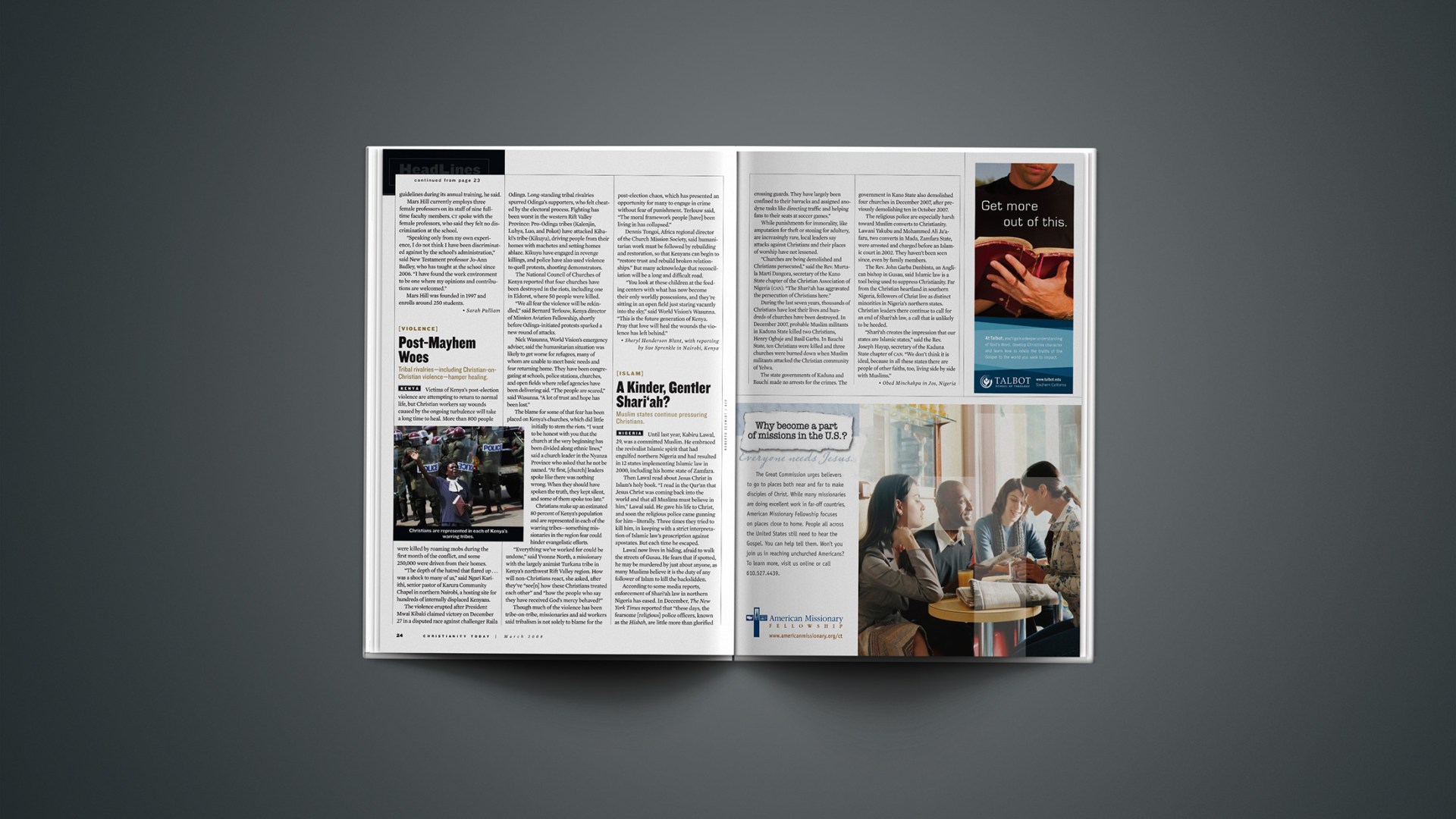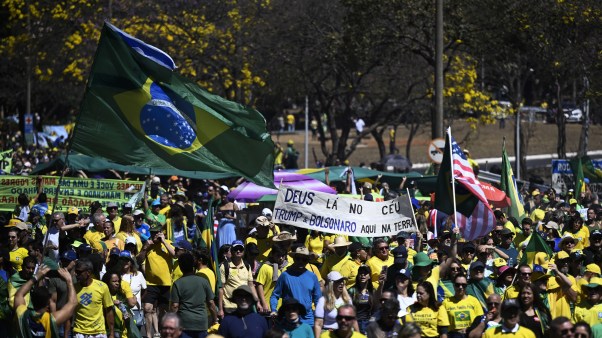Victims of Kenya’s post-election violence are attempting to return to normal life, but Christian workers say wounds caused by the ongoing turbulence will take a long time to heal. More than 600 people were killed by roaming mobs during the first week of conflict, and some 250,000 were driven from their homes.
“The depth of the hatred that flared up … was a shock to many of us,” said Ngari Kariithi, senior pastor of Karura Community Chapel in northern Nairobi, a hosting site for hundreds of internally displaced Kenyans.
The violence erupted after President Mwai Kibaki claimed victory on December 27 in a disputed race against challenger Raila Odinga. Long-standing tribal rivalries spurred Odinga’s supporters, who felt cheated by the electoral process. Fighting has been worst in the western Rift Valley Province: Pro-Odinga tribes (Kalenjin, Luhya, and Luo) attacked Kibaki’s tribe (Kikuyu), driving people from their homes with machetes.
The National Council of Churches of Kenya reported that four churches were destroyed in the riots, including one in Eldoret, where 50 people were killed.
“We all fear the violence will be rekindled,” said Bernard Terlouw, Kenya director of Mission Aviation Fellowship, which has been evacuating people from danger zones and flying in supplies to hard-hit areas.
Nick Wasunna, World Vision’s emergency response specialist in Nairobi, said the humanitarian situation was likely to get worse for refugees, many of whom lack basic needs and fear returning home. They have been congregating at schools, police stations, churches, and open fields where relief agencies have been delivering aid. “The people are scared,” said Wasunna. “A lot of trust and hope has been lost.”
The blame for some of that fear has been placed on Kenya’s churches, which did little initially to stem the riots. “I want to be honest with you that the church at the very beginning has been divided along ethnic lines,” said a church leader in the Nyanza Province who asked that he not be named. “These ethnic divisions have moved into denominational lines. … At first, [church] leaders spoke like there was nothing wrong. When they should have spoken the truth, they kept silent, and some of them spoke too late.”
Christians make up an estimated 80 percent of Kenya’s population and are represented in each of the warring tribes — something missionaries in the region fear could hinder evangelistic efforts.
“Everything we’ve worked for could be undone,” said Yvonne North, a missionary with the largely animist Turkana tribe in Kenya’s northwest Rift Valley region. How will non-Christians react, she asked, after they’ve “see[n] how these Christians treated each other” and “how the people who say they have received God’s mercy behaved?”
Though much of the violence has been tribe-on-tribe, missionaries and aid workers said tribalism was not solely to blame for the post-election chaos, which presented an opportunity for many to engage in crime without fear of punishment. Terlouw said, “The moral framework people [had] been living in collapsed.”
Dennis Tongoi, who has been helping coordinate relief efforts through the recently established National Alliance of Churches, said humanitarian work must be followed by rebuilding and restoration, so that Kenyans can begin to “restore trust and rebuild broken relationships.” But many acknowledge that reconciliation will be a long and difficult road.
“You look at these children at the feeding centers with what has now become their only worldly possessions, and they’re sitting in an open field just staring vacantly into the sky,” said World Vision’s Wasunna. “This is the future generation of Kenya. Pray that love will heal the wounds the violence has left behind.”
Copyright © 2008 Christianity Today. Click for reprint information.
Related Elsewhere:
A Rift Valley Academy staff member wrote “A Postcard from Kenya” about living and running the school amid the ongoing violence.
Newser, The New York Times, and BBC News have updated sections on the violence in Kenya.
Christianity Today‘s coverage includes:
Baptists Serve Kenya’s Displaced After Post-Election Violence | Nearly 600 dead in clashes, and more than 250,000 ousted from homes. (January 15, 2008)
Air Support | Kenya’s MAF director reports on evacuation and supply efforts. (January 11, 2008)
From CT Liveblog: Ushahidi.com is mapping out incidents of violence and calls for help. (January 15, 2008), Despite today’s news that Friday will likely bring negotiation talks, countless Kenyans still await food, shelter. (January 7, 2008)










